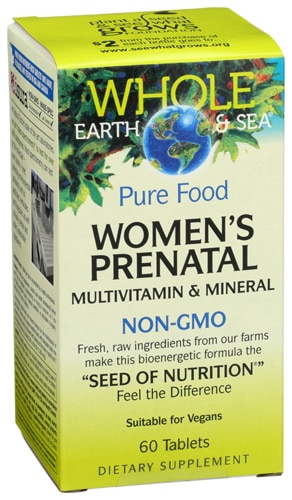Congratulations on your new family-member-to-be! Having a baby is an exciting time that comes with its fair share of changes – to both your body and your family. No doubt, you have many concerns, chief among them your developing infant's health.
Your nutritional choices impact fetal development. However, you may find it more challenging to maintain a healthy diet while your body navigates the whirlwind of pregnancy. You may experience shifts in your appetite and battle nausea and cravings. When you know what to expect, you can nourish yourself and your baby without losing your mind.
1. You may lose your appetite
You've probably heard that you're supposed to gain weight during pregnancy, which is true. You're carrying another human being inside you, after all. Most doctors recommend that women gain between 25 and 35 pounds, although this figure may vary. If you were already carrying extra weight when you conceived, for example, you may not need to gain as much. If you were underweight, you might need to pack on more.
Unfortunately, you may find it challenging to keep food down, particularly in the first trimester. Many women gain only one to four pounds, while others find themselves shedding weight. You might worry that you're not holding down sufficient calories to nourish your developing child.
Don't worry too much — at this point, your fetus is so tiny, it has few needs. Take your prenatal vitamin to prevent deficiencies, and check with your OB/GYN if your morning sickness doesn't subside or interferes with your daily activities.
During the second semester, your uterus expands considerably, which puts pressure on your other organs. You might feel your appetite come roaring back after your morning sickness subsides but feel full after a few bites.
Try these tips if you find your appetite flagging.
- Eat small meals: Indulging in a fried or fat-laden meal can increase feelings of nausea.
- Drink up: It's critical to stay hydrated. If solid foods don't work, nutritional shakes can prevent deficiencies.
- Avoid strong-smelling foods: Smell can trigger nausea. Even if you adore garlic, you might find your pizza suddenly nauseating.
2. You could develop food allergies
Your hormones change during pregnancy, which can render you susceptible to food allergies, even if you've never had them before.
How will you know if you have a food allergy? You could develop tingling around your mouth or break out in hives shortly after eating the offending substance. Your passages may swell, and you could experience difficulty breathing. You might also endure nausea and vomiting, although it can be challenging to differentiate this from typical sickness early in pregnancy. In rare cases, allergies can cause anaphylaxis — see your doctor if you experience these symptoms and get tested.
If your doctor diagnosed you before you conceived, and you received shots, it's generally safe to continue them. However, many specialists do not recommend starting a series of allergy shots when you are pregnant. In the case of a positive allergy test, it's best to just avoid the food until after you give birth.
3. You could develop deficiencies
A recent study of the 20 wealthiest countries ranked the United States dead last when it comes to infant mortality rate. Part of the problem lies within the way the nation lacks a single-payer health insurance system similar to other countries. Another rests in the rise of the gig economy. Many of the jobs classified as such offer zero benefits to laborers.
Many expectant mothers experience significant anxiety because of food insecurity. In a study of nearly 400 women, 22% were depressed, and 23% had an anxiety disorder. Food insecurity doubled the chances of a pregnant woman developing one of these conditions. These diseases often prevent people from seeking the care they need.
4. You may crave unusual combinations
Ah, cravings. Nearly every expectant mother has heard tales of pickles and ice cream at midnight. Some researchers believe pregnant women desire foods their bodies are deficient in. Others say the cravings are entirely psychological. To maintain proper nutrition, talk to your doctor about a supplement and double down on broccoli and other high-calcium, plant-based foods.
You might also crave soda during pregnancy, as the carbonation can quiet intestinal distress. However, the sugar in this beverage packs on pounds and rots your teeth. A better choice is sparkling mineral water. If you don't like drinking it plain, add slices of cucumber and watermelon for flavor.
5. Your baby may adopt your tastes
If you want your baby to eat healthy foods without complaint once they're born, you need to consume them during your pregnancy. Tests on amniotic fluid show what mom eats passes to the baby in utero. If you nosh down on carrots and radishes, your little one is more likely to consume them without complaint. If you feed yourself nothing but junk, don't act shocked when your toddler clamors for a drive-thru meal complete with a toy.
From an evolutionary standpoint, this phenomenon makes perfect sense. After all, in the wild, infants eat what their mothers do. In our modern world, where additive-laden fast food is the norm, this technique offers one way to keep your child healthier.
Feed Yourself Well Throughout Pregnancy
The foods you select throughout pregnancy significantly impact the health of your developing infant. To make sure your baby is born as healthy as possible, eat well!




